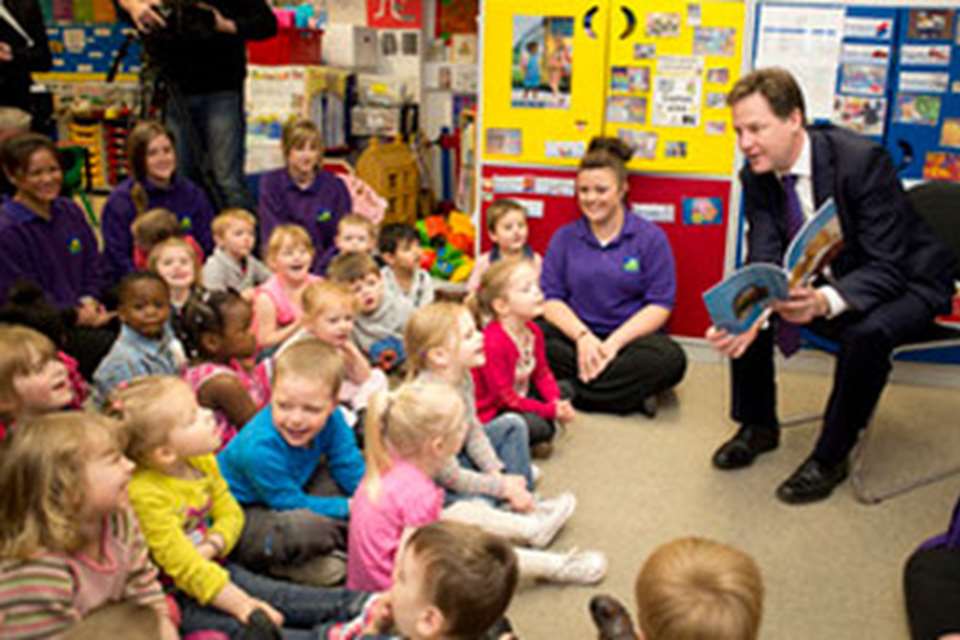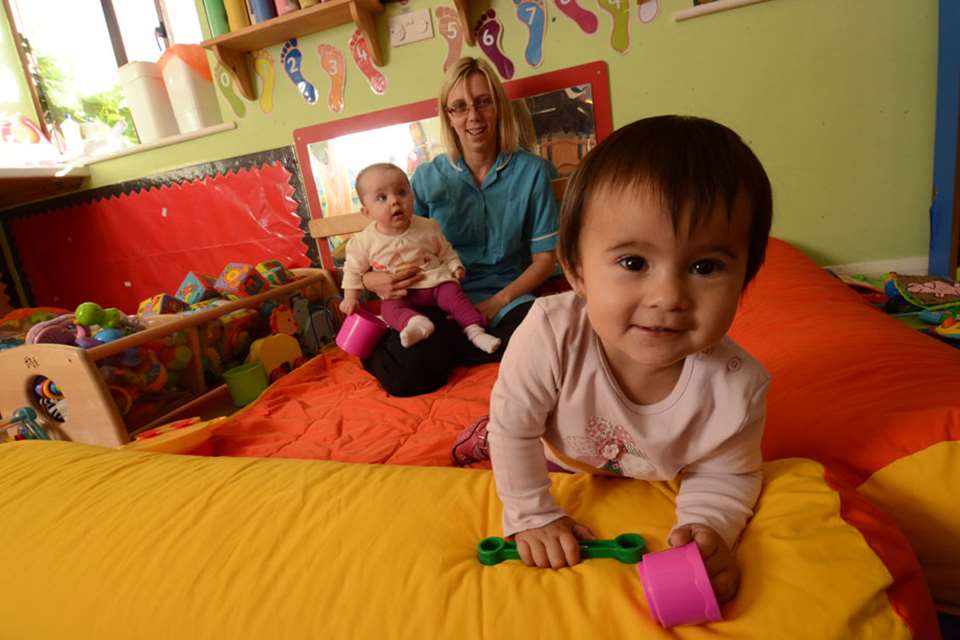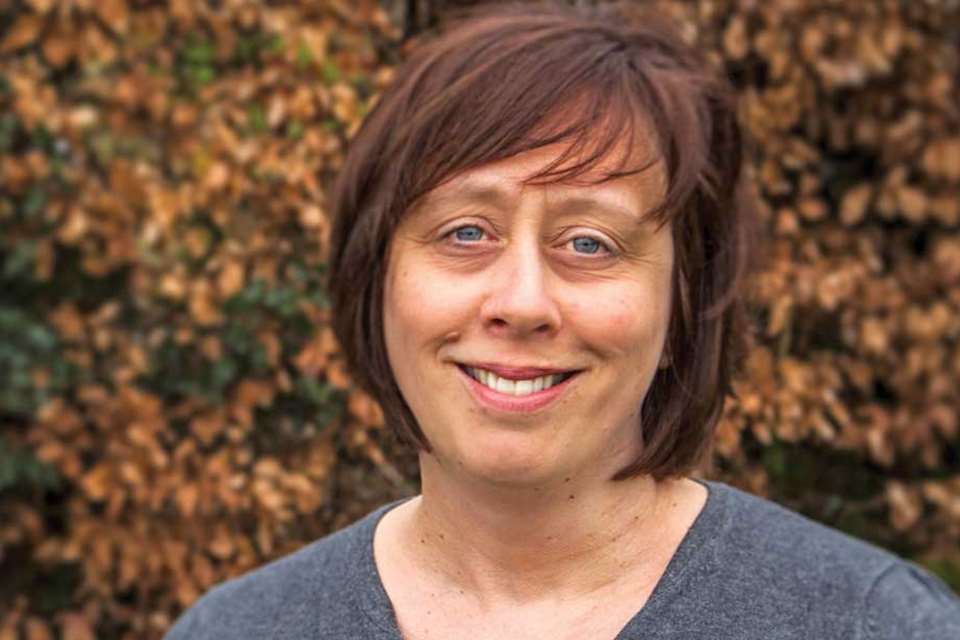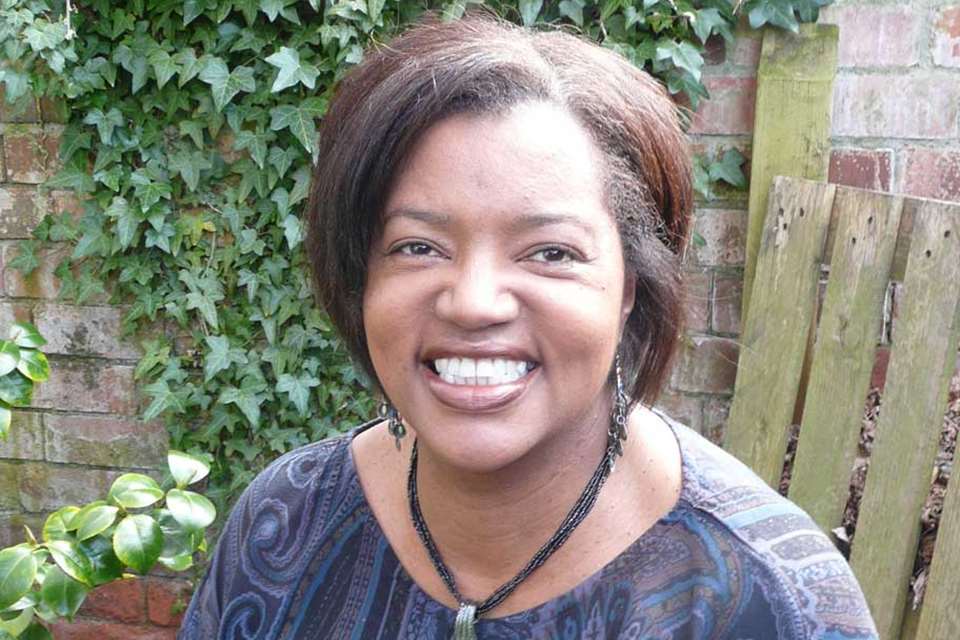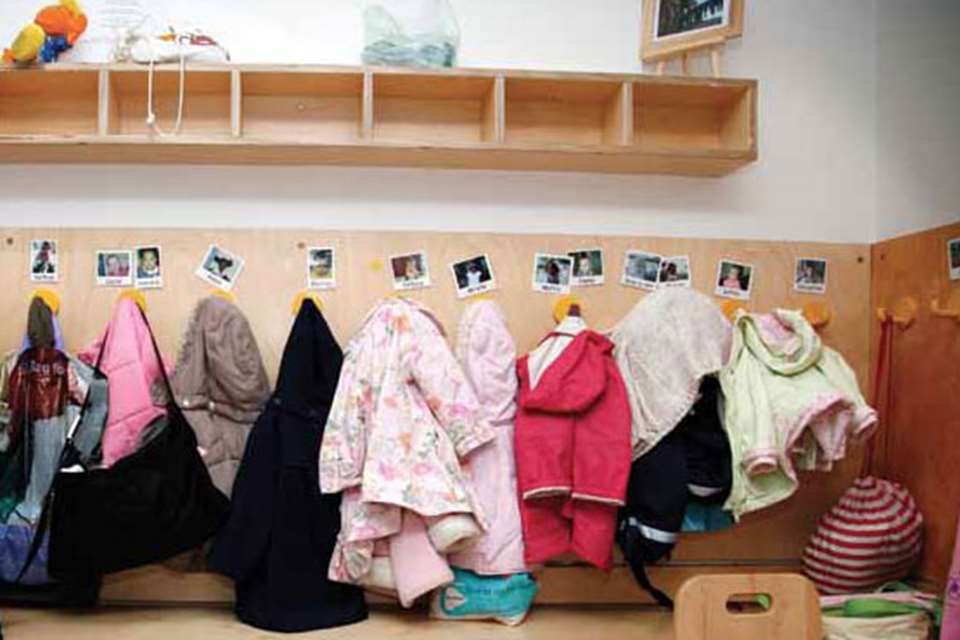Overview of the year - Roundup: this year's big news
Catherine Gaunt and Katy Morton
Monday, December 16, 2013
We take a look at some of the biggest stories of 2013 and consider what lies ahead.

#Ofsted Big Conversation
If you asked most early years settings and nursery owners to list their biggest concerns, Ofsted inspections would figure high on the agenda of most.
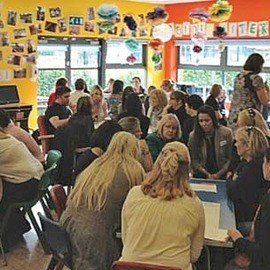 This year, the rise in dissatisfaction with Ofsted was at its height. What started with a debate on Nursery World's LinkedIn pages culminated in a weekend of action on the 13 and 14 September when more than 300 people from across the sector joined forces to hold nine regional meetings across England.
This year, the rise in dissatisfaction with Ofsted was at its height. What started with a debate on Nursery World's LinkedIn pages culminated in a weekend of action on the 13 and 14 September when more than 300 people from across the sector joined forces to hold nine regional meetings across England.
Three months on, one of the ideas that sprung from that weekend - of setting up a practitioner forum to meet with Ofsted on a regional basis - has taken root.
June O'Sullivan, chief executive of the London Early Years Foundation, whose debate on LinkedIn sparked the Ofsted Big Conversation, told Nursery World, that 'steady progress' was being made and that around half of the regions had already had 'scoping meetings' with their Ofsted regional director.
Ms O'Sullivan has met with Ofsted director of early childhood Sue Gregory twice and with Nick Hudson, the regional director for the North West. She has also - with Catriona Nason, who set up the Ofsted Big Conversation website - met Debbie Jones, regional director for London, and Mark Phillips, a senior inspector for London.
'The ball is in the sector's court at the moment with the onus on us to push for the regional meetings, ' she added. 'However, if we see Ofsted slowing down or dragging its feet when it comes to planning dates for regional meetings in January, then we will start exerting pressure again. Right now though, we are seeing Ofsted respond sensibly, so we remain optimistic that the sector and the regulator can form a reciprocal and mutually respectful relationship that will enhance quality and compliance.'
Ms Nason said, 'Once contact is made across all regions, and an agreement for ongoing relationships is reached, then we will continue with open meetings across the country to share information and agree the way forward.'
Jo Verrill, of research and information provider CEEDA, told Nursery World, 'There is also much positive progress to report in the North. Colleagues in the North East and Yorkshire and Humber regions met with Nick Hudson earlier this month and agreed outline plans for regular formal meetings in 2014. We very much look forward to continuing constructive discussions in the New Year.'
Meanwhile, in the West Midlands childminder Penny Webb and Cath Ellicott from the early years team at Worcestershire County Council are chairing the regional group and are hoping to set up a meeting with Lorna Fitzjohn from Ofsted.
- See the Nursery World LinkedIn group for updates on meetings.
Ratios
This summer saw the early years sector successfully unite to overturn Government proposals to relax staff: child ratios.
After months of campaigning by the sector and parenting organisations, the Deputy Prime Minister Nick Clegg confirmed in June that the changes to ratios for pre-school children had been scrapped.
Childcare minister Elizabeth Truss had proposed changes to staff: child ratios in More Great Childcare, as a way of making childcare cheaper for parents.
However, just four months after the Government backed down on the plans, the Department for Education (DfE) appeared to be renewing its efforts to encourage settings to make greater use of the 1:13 ratio afforded for threeand four-year-olds in graduate-led sessions.
Nursery World learned that the DfE had spoken with a number of early years organisations and experts to determine 'barriers' preventing settings from using the higher ratio for threeand four-year-olds.
Along with consulting with the sector, the DfE also asked parents of pre-school children, via Twitter and its Facebook page, to complete a survey on the qualification levels of staff at their child's nursery and the ratio of staff to children.
A spokesperson for the DfE said the findings of the survey were to inform the DfE and would not be made public.
Childminder agencies

Plans to introduce childminder agencies have proved unpopular with the sector, with a large number of childminders wishing to remain independent.
The proposals were first outlined in More Great Childcare in January. They are expected to become enshrined in law.
The Government sees childminder agencies as a means of cutting costs and bureaucracy for individual childminders and as the key to expanding childminder numbers.
Childminders' main concerns are that agencies will create a two-tier system, push up fees, be more costly for childminders and create a child safeguarding risk, with only agencies receiving Ofsted inspections rather than individual childminders. More than 200 childminders, most rated good or outstanding and holding degrees, have posted comments on Facebook saying they will not be joining a childminding agency.
Claire Brunner, a childminder in Leeds, said, 'I am an outstanding childminder, an EYP and hold a MA in Early Years. I will not be joining an agency because it will impact negatively on the quality, price, accountability, individuality, safety of provision for children, and choice of childcare for parents.'
Another childminder, Sam Littlejohns from Leicester, said, 'I do not see how joining an agency will help to reduce the cost of childcare. I charge £3 an hour. I can't go any lower.'
Nearly 4,000 people in the sector have signed the Stop, Listen and Consult petition calling for the DfE to reconsider plans in More Great Childcare, including childminder agencies.
The Professional Association of Childcare and Early Years (PACEY) believes childminder agencies will have a negative impact on the childminder profession.
Concerns have also been raised over the progress of the 20 childminder agency pilots, which will run for 12 months. In October, Nursery World reported that while several organisations had held meetings with childminders in their local communities, some attendees felt those running the pilots did not seem to have knowledge or experience of childminding.
Nursery World has now contacted a number of the 20 organisations running the childminder pilots for an update.
A spokesperson for Hampshire County Council said it is continuing to look at how such an agency approach could be developed and is planning to hold further discussion with childminders, other key professionals and parents during Spring 2014. The council added, 'nothing has been agreed or finalised yet.'
Riverside Cares, which is trialling a childminder agency, said the start of the pilot coincided with the launch of its new website, which has a dedicated area for childminders where they can ask questions about participating in the agency.
Managing director Jill Wheatcroft said, 'This (the dedicated area for childminders) has proved really rewarding and we invite people to contact us with any questions or comments. As the scheme enters its second phase, we're meeting and speaking with childminders. Some have concerns about the scheme's long-term impact; others, as they learn more about it, are opening up to the idea that this could provide another route to childminding and support.'
South Gloucestershire Council said the agency pilot is enabling it to trial new ways of attracting childminders and offering them flexible training and support.
Sue Tanner, interim senior advisor for early years at the council, said, 'We will need a new generation of childminders to respond to the planned housing expansion in South Gloucestershire.
'We are using this opportunity of working with different pilot agencies to learn more about how others work. Being part of the pilot doesn't mean that we will automatically operate as an agency in South Gloucestershire, but our involvement ensures that the council is at the forefront of any new developments in the sector.'
Children's centres
The future of a number of children's centres across the country has been put in doubt as several local authorities this year proposed closing centres to make further savings to their budgets.
In October, Essex County Council put out plans for consultation to close 11 of its 85 children's centres and drastically reduce the opening hours of other centres. The council's consultation closed on 5 December.
Seven children's centres in Bradford and six in Peterborough are also at risk of closure as part of council cost-saving measures, while Gateshead Council acknowledged in November that centre closures were being considered.
Another local authority, Wolverhampton City Council, proposed reducing provision at nine of its 17 children's centres earlier in the year.
A handful of local authorities have backtracked on proposals to close children's centres, including Dudley Borough Council and Oxfordshire County Council (see page 10), after widespread campaigning by parents and local residents. Kent County Council gave 11 of its centres earmarked for closure a reprieve, but 12 are still expected to shut.
At the same time, a record number of families are using children's centres, according to 4Children's Children's Centre Census 2013.
The census, based on the responses of 501 children's centre staff, revealed that for the first time more than a million families are using their local centre, including 320,000 disadvantaged families.
The Labour party is currently disputing Government figures about how many Sure Start children's centres have closed since it came into power.
According to calculations by Labour, 578 children's centres have closed since the Coalition Government came to power. However, the education and childcare minister Elizabeth Truss has claimed there have been just 45 closures, while some new centres have opened.
Last month, early years experts called for a national debate on how children's centres provide vital support for children.
Meanwhile, several councils across the country are expected to make a decision about the future of their children's centres next year, as their budget consultations come to a close.
Two-year-old places

In September, around 130,000 disadvantaged two-year-olds became eligible for 570 hours of free childcare a year or 15 hours per week, delivered by early years settings rated good or outstanding.
The scheme, open to two-year-olds looked after by local authorities and whose families are on income support or have an annual income under £16,190, was introduced by the Government to improve the attainment and life chances of some of the country's most 'disadvantaged' children and support working parents.
James Hempsall, director of Hempsall's, which with Mott Macdonald is supporting the implementation of the two-year-olds programme, said, 'It's terrific to see how local authorities, their partners and providers have come together to already offer nearly 100,000 children their entitlement.
'We are looking forward to another year of hard work with everyone to ensure we are right on the mark for delivering the 260,000 places from next September. What will be absolutely key is that those families who are eligible hear about it, so we are urging everyone to spread the word.'
While the sector recognised the programme as being beneficial to the 'disadvantaged' two-year-olds identified for the free places, concerns have been raised over the levels of funding and a lack of good and outstanding settings to deliver the places, as well as the likelihood of filling the places and the extra pressure that providing the places could place on settings.
DfE figures in November revealed that 92,000 eligible two-year-olds have so far taken up the offer, leaving 38,000 places unclaimed.
A Freedom of Information Request (FOI) by Labour found that one in three councils believe they do not have enough places to meet the Government's two-year-old offer.
From September 2014, the number of two-year-old places is set to double to 260,000 to include children who are eligible for free school meals and those who have a statement of special educational needs.
In July, Heather Langridge, the joint owner of York Nurseries in Burnley, Lancashire told Nursery World that the nursery had accessed more than £60,000 worth of funding to carry out building work to increase capacity to accommodate more than 40 eligible two-year-olds.
This week, we contacted Ms Langridge for an update. 'We have the places here and available, but the children aren't coming through the door, despite the nursery being based in one of the top areas of deprivation,' she said.
'Children's centres are struggling to reach children eligible for the places. We are working closely with our local children's centre to find ways to target these families.'
Zoe Raven, managing director of Acorn Childcare, which has nine nurseries in Milton Keynes and Northamptonshire, said her experience of delivering the places had been very positive.
She said, 'The two-year-old programme is bringing eligible children into nursery earlier on and they are really benefiting from the free early education.'
She added, 'We did, however, underestimate how much time staff would have to spend attending multi-agency meetings, particularly for children who have issues with language development.'




